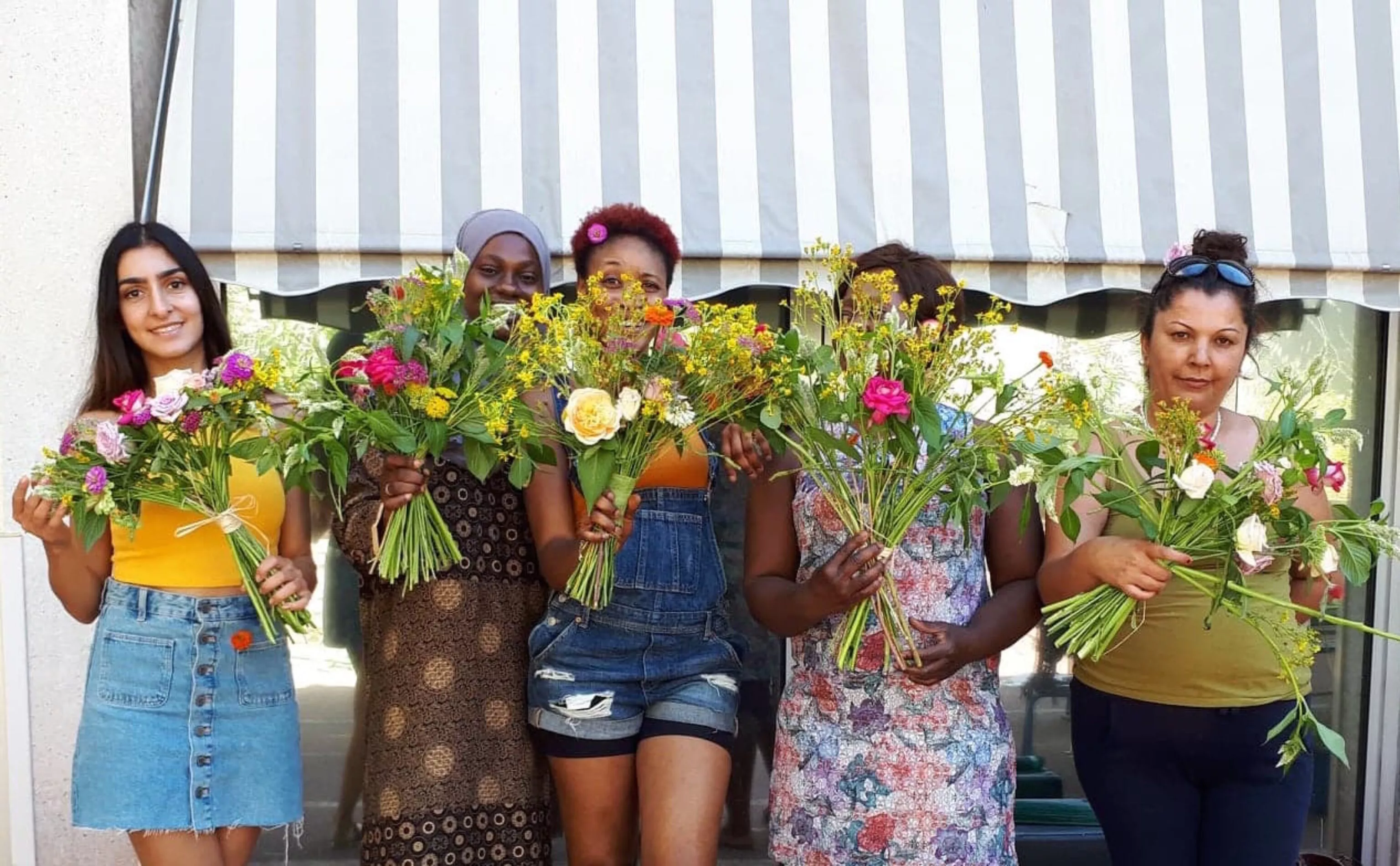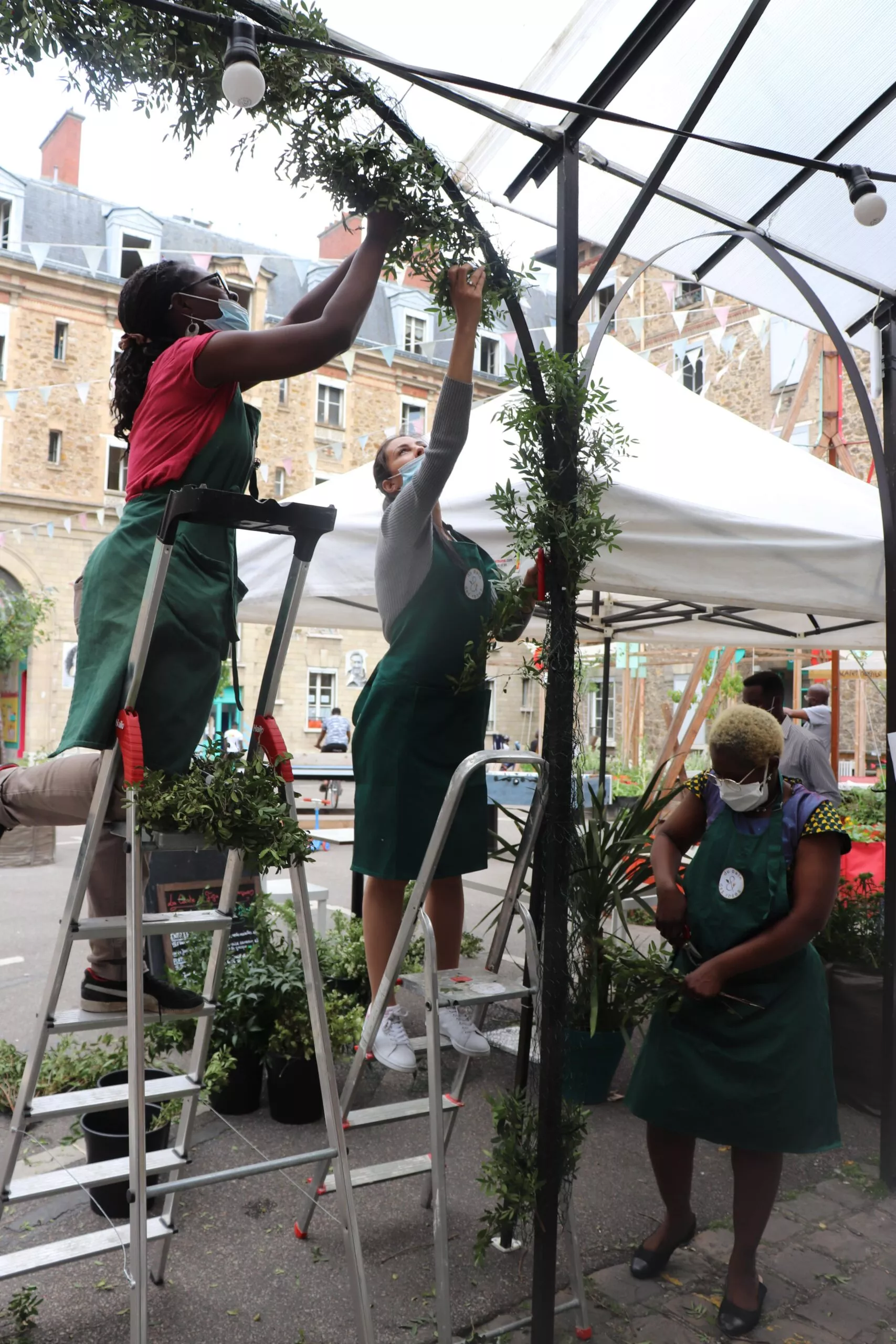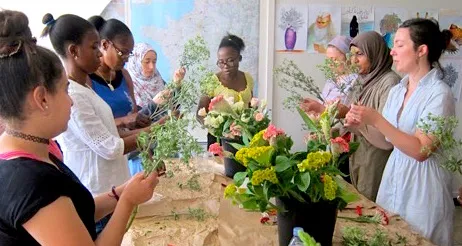Flowering the future of women and the planet
The ‘Fleurir l’avenir des femmes et de la planète’ project presented by the Du Pain & des Roses association is a response to these issues. It is part of an approach to renewing the flower market that is more respectful of the environment by favouring local producers based in Ile-de-France, Brittany and the Var.
In practical terms, the association offers 7-week training sessions to women with complex backgrounds who are far from employment. These are generally women aged between 20 and 50, of all origins, living in the Ile-de-France region and facing problems getting back to work, and sometimes living in reception and accommodation centres (CHRS, CHU, CPH, etc.). To take part in these training courses, you need to be registered with Pôle Emploi, have a minimum knowledge of French and be in good physical condition. Today, the shelters are partners of the association and individually recommend women in need.
A training session is organised around two essential aspects, the theoretical part and the practical part:
- During the theoretical phase, apprentices work alongside florist trainers two days a week to learn flower arrangement techniques and other skills essential to the profession of florist, while integrating into the French flower market. They are also helped to prepare their career plans at the end of the course (writing CVs, creating a portfolio, etc.).
- The practical phase is devoted to real-life situations at the Du Pain & des Roses flower stall in Paris (near Saint-Lazare) – the association’s sales outlet – where the women apprentices develop their skills in preparing bouquets and dealing with customers.
- Educational outings are also organised to Rungis and Île-Saint-Denis (on the site of the Halage association) to raise awareness of the workings of the network of French producers and the flower’s journey.
The ecological aspect is central to the training of these future florists, who will be confronted with these issues as they practise their profession, when they open their own shop or as employees.



